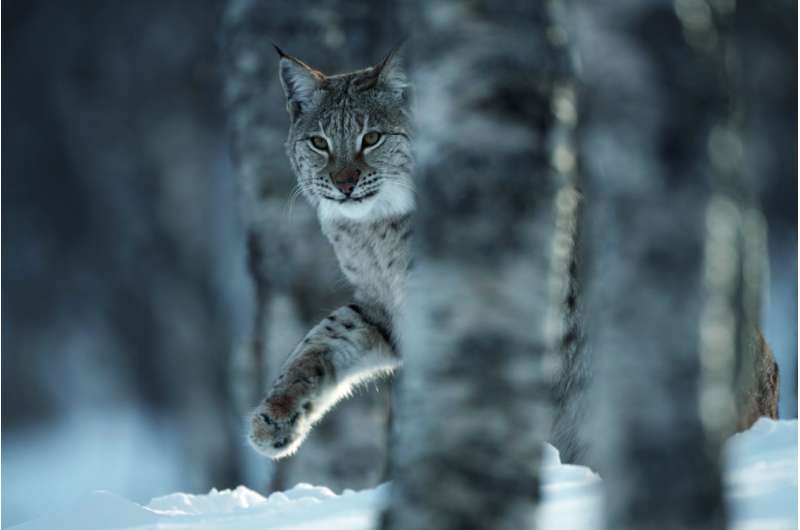This article has been reviewed according to Science X's editorial process and policies. Editors have highlighted the following attributes while ensuring the content's credibility:
fact-checked
peer-reviewed publication
trusted source
proofread
Lynx reintroduction in Scotland? It's complicated

Plans to reintroduce the lynx in Scotland provoke a complex range of opinions, new research shows.
Lynx died out in Britain more than 1,000 years ago, but some conservation groups argue the species could help restore natural ecosystems. A new study, by researchers from Vincent Wildlife Trust and the University of Exeter, has investigated the views of stakeholders including farmers, land managers and conservationists.
The work is published in People and Nature.
"Our results show that views in Scotland about potential future lynx reintroduction are far more diverse, nuanced and complex than might have been assumed," said lead author David Bavin, of Vincent Wildlife Trust. "Rather than a simple binary split of 'for' and 'against,' we found a spectrum of different perspectives."
Five distinct perspectives were identified:
- "Lynx for Change": Supportive of lynx reintroduction, feeling that lynx could facilitate ecosystem restoration.
- "Lynx for Economy": Also supportive, anticipating economic benefits to local communities.
- "No to Lynx": Strongly opposed, perceiving that humans are fulfilling the roles of absent large carnivores.
- "Scotland is Not Ready": Supported the conversation but perceived prohibitive socio-ecological barriers.
- "We are Not Convinced": Not satisfied that an adequate case for biodiversity gain had been made but were open to further exploration of the potential.
Bavin continued, "The study identified important areas of disagreement over the potential impacts on sheep farming and the degree to which our environment should be managed by people or encouraged to self-regulate.
"There was a lack of trust between stakeholder groups, which primarily stemmed from some of the participants' experiences of previous wildlife reintroductions and the management of recovering predators. Encouragingly, however, there was agreement that for any discussion about lynx reintroduction to move forward, a participatory and cooperative approach is essential."
Dr. Sarah Crowley, from the University of Exeter, added, "The study provides a foundation for future dialogue between stakeholders over the prospective reintroduction of the lynx to Scotland. The findings also have wider relevance for wildlife reintroductions, species recovery, and conservation conflicts elsewhere."
The study was carried out in the Cairngorms National Park, based on detailed discussions with 12 people representing a range of groups with an interest in the issue of lynx reintroduction.
A second stage then took place, with 34 new participants taking a survey to give their views on a range of statements about the issue.
More information: Stakeholder perspectives on the prospect of lynx (Lynx lynx) reintroduction in Scotland, People and Nature (2023). DOI: 10.1002/pan3.10465
Journal information: People and Nature
Provided by University of Exeter




















